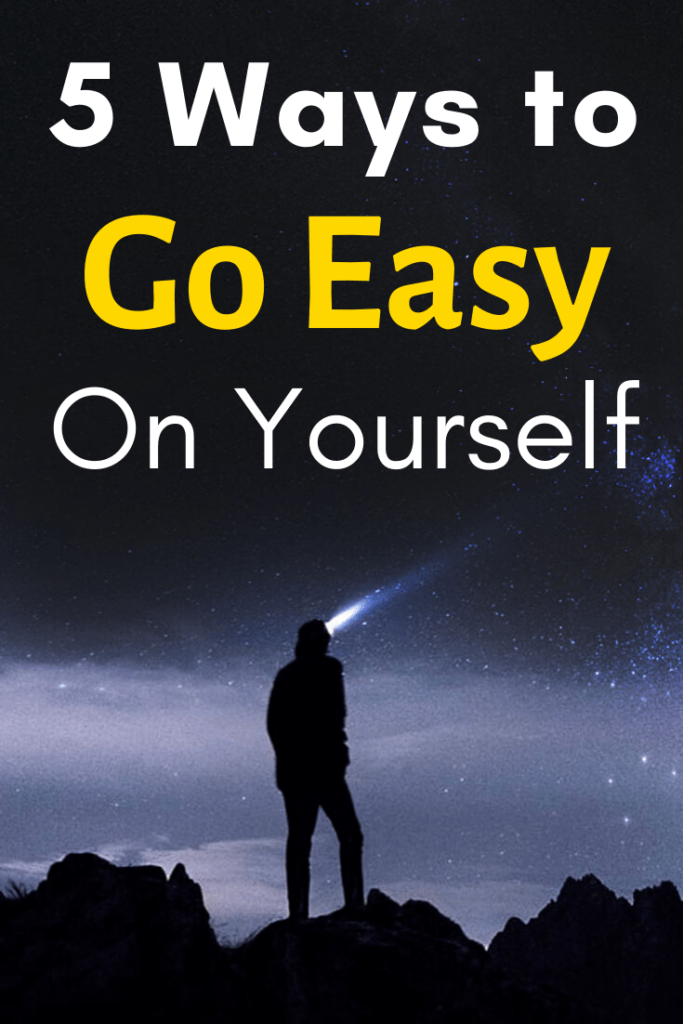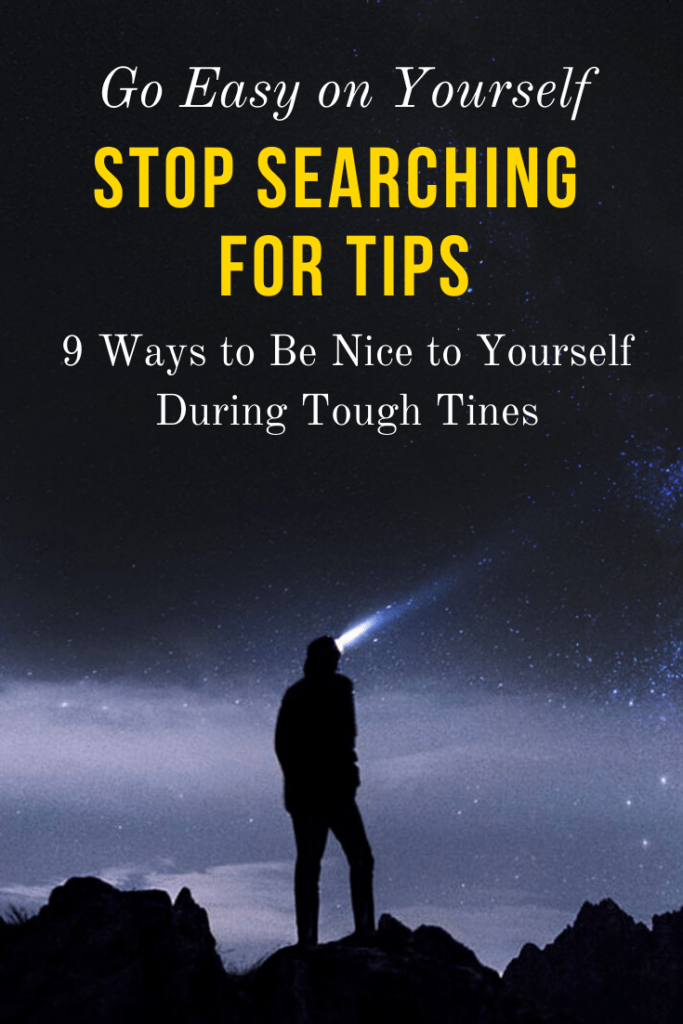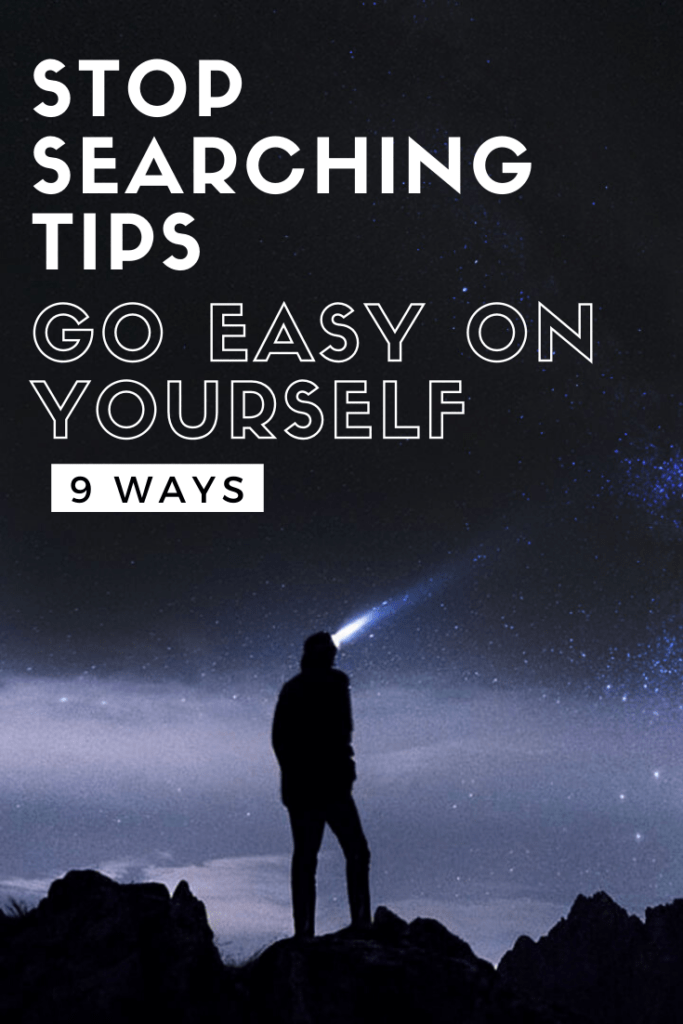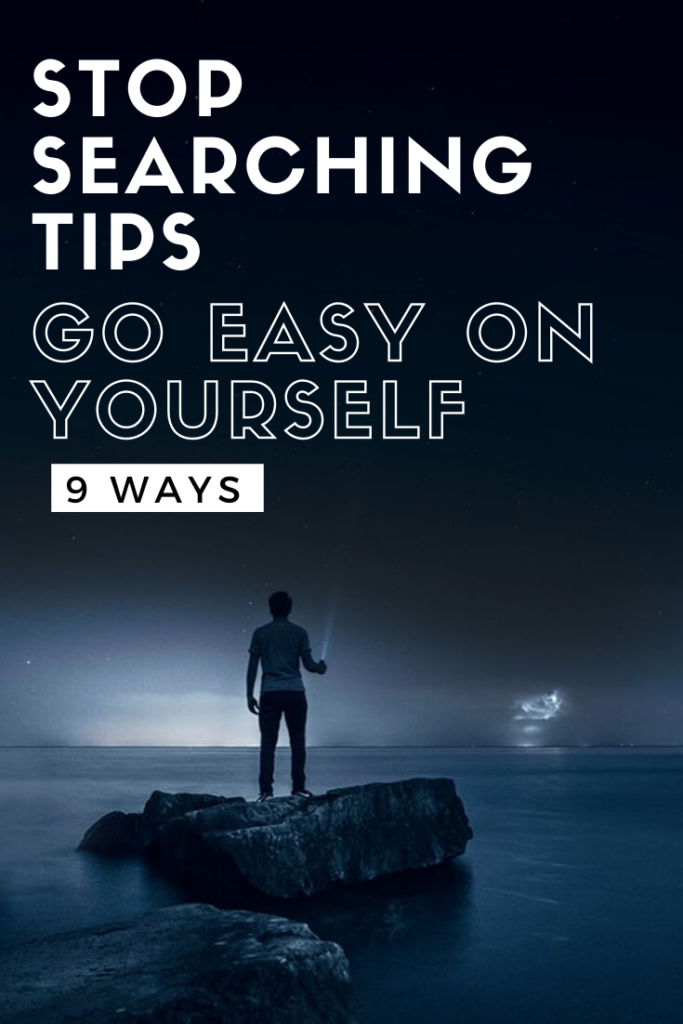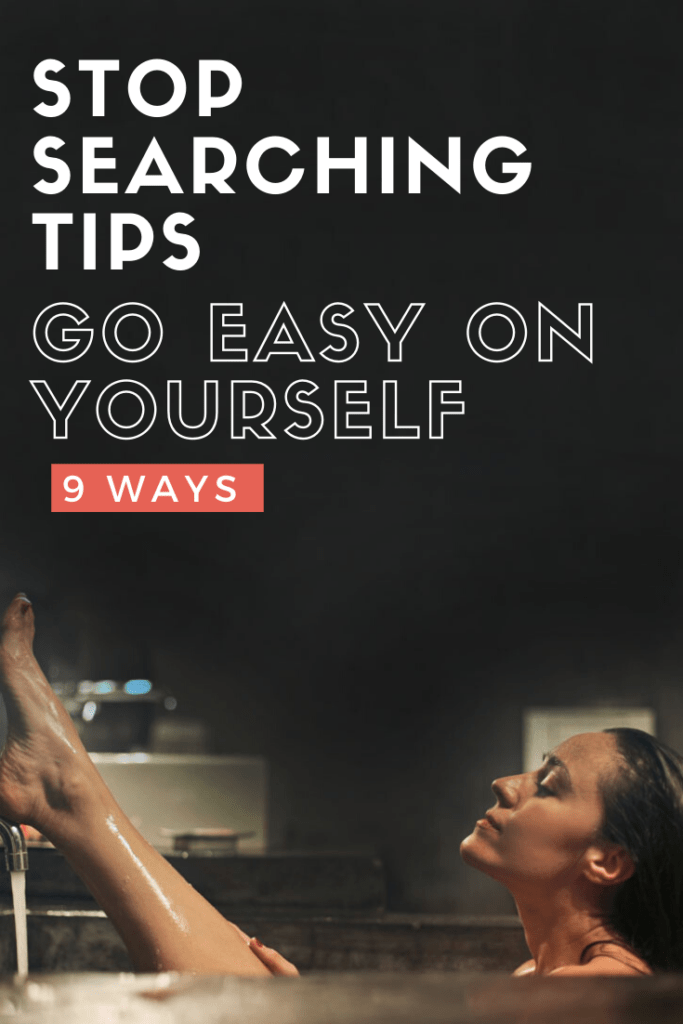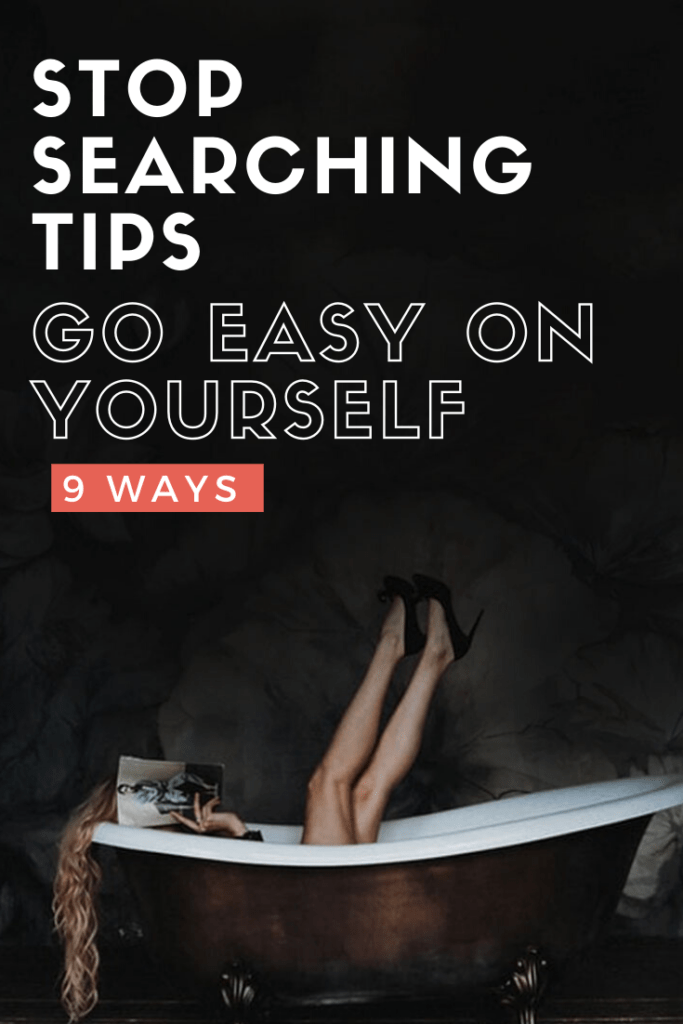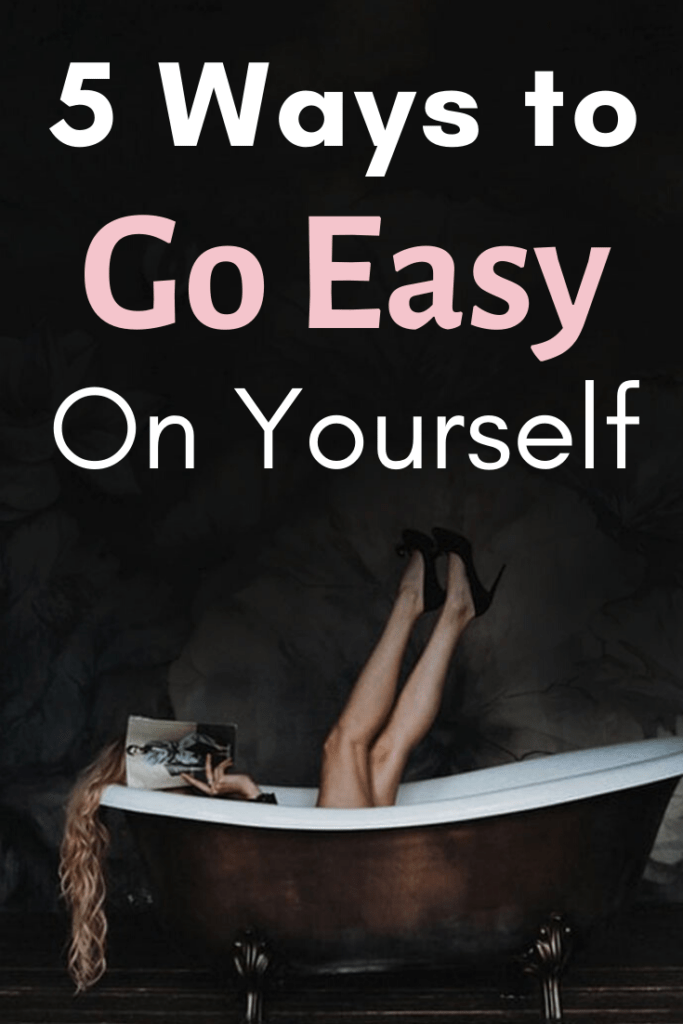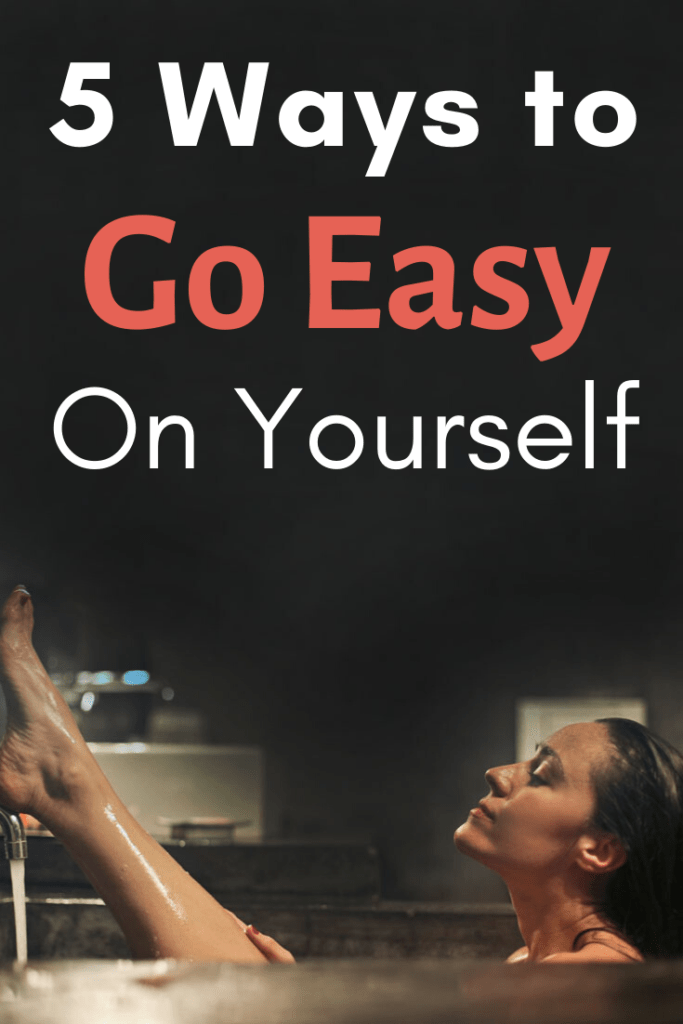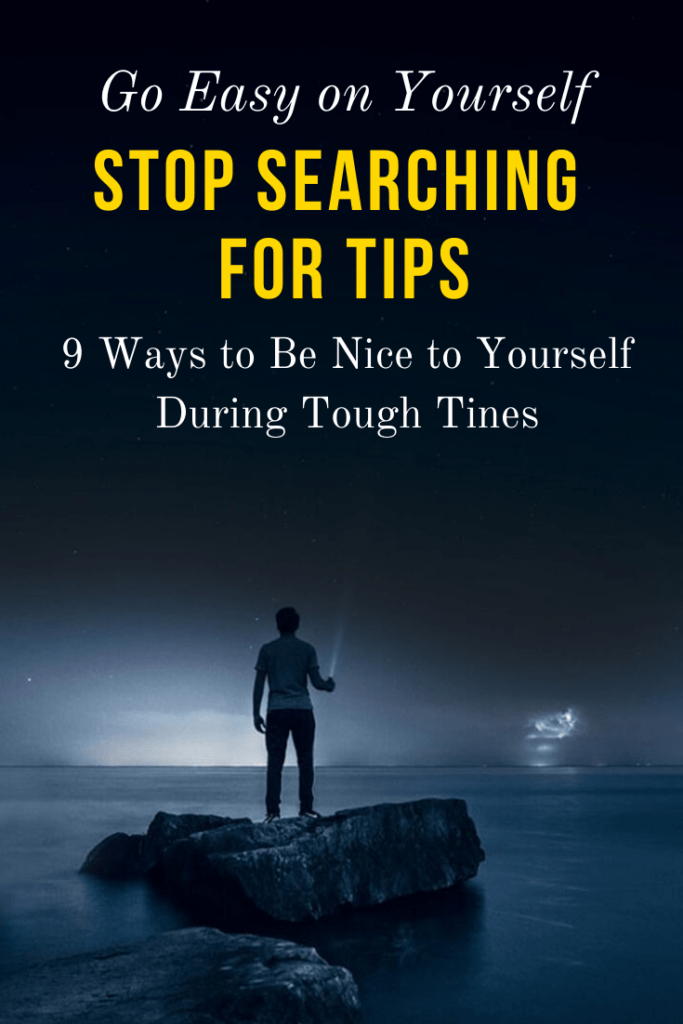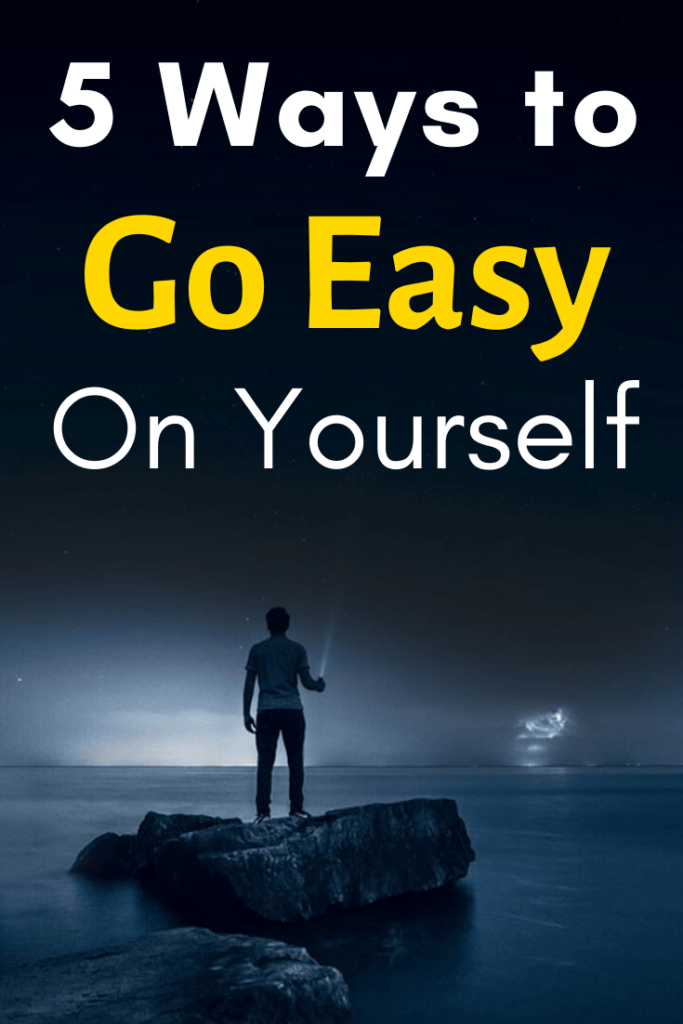
Table of Contents
How have you been keeping busy during this pandemic?
If you’re not an essential worker or looking after someone, the answer probably varies:
- Figuring out how to work from home and use different technologies.
- Wondering how you’re going to survive without a job.
- Trying out new bread recipes.
- Crying about your newfound loneliness and anxiety into a pillow as to muffle the noise and not awake your neighbor.
This pandemic means changes for all of us and change isn’t always easy. But we can make it a little (or a lot) easier by going easy on ourselves. That means realizing we don’t need to be productive and perfect all of the time. This is new for all of us. Let’s cut ourselves some slack.
9 Ways to Go Easy on Yourself During Tough Times
Here’s 9 ways we can be gentle on ourselves during COVID-19.
#1 Surrounding Yourself with Gentle Environments
When we’re supposed to stay at home, we can’t really choose our environment. But we can switch it up a little. Whether you have an entire apartment or house to yourself or just a small room, here’s some things you can do to make the environment more pleasant:
- Open a window
- Open the blinds
- Add some plants
- De-clutter, reorganize and clean
- Diffuse essential oils
- Burn a candle
#2 Connect with Nature
Although we shouldn’t be wandering too far from our home or joining others, in most places, it’s still ok to go outside for a walk. Instead of spending your time walking or jogging on a busy street, try a lesser crowded park, somewhere by the lake or ocean, in the forest, a hike, etc. Being in naturally serene environments is a good way to bring gentle energy into our life for a small part of the day.
#3 Listening to Gentle Music
If you live in an apartment building and everyone else is home too, you may have noticed yourself becoming very sensitive to noise. If there’s thin walls, you may seemingly hear every movement in the apartment above or beside you. Or you may hear other people’s conversations. Usually, this doesn’t seem like a big deal. But when everyone is home all of the time, it can start to make you feel a little weird.
A good way to offset this is by playing gentle music in the background. Although your favorite music is another option, there’s something about slow, instrumental tunes that just make you feel calmer sometimes.
#4 Don’t Engage in Battles
In this political climate, there is no shortage of battles to engage in. But with COVID-19 becoming another thing to argue about, there’s even more opportunities. It can be tempting to correct every friend, stranger or fake Facebook post you see. But it can also lead to burnout and frustration without (honestly) having that much impact.
If becoming the “pandemic police” has evolved into a 24/7 job for you, take off the badge for a bit and call it a night. When you see something annoying, take a deep breath, blow out the frustration, and try to move on. Retreating from conflict right now can be the difference between a sane mind and a rageful, fearful one.
#5 “Surround” Yourself with Gentle People
During COVID-19, we’re limited in who we can see, but not who we can interact with. Now is a good time to do a friend inventory. We don’t have to lie to cancel plans or avoid seeing people out of awkwardness because everyone is (or at least should be) at home.
Consider the people in your life who may be a source of anxiety or panic. In the mix of everything that’s going on with the world, if your mental health doesn’t allow you to take on someone else’s problems or mean comments, that’s okay. If these people are your family or house members, it can be hard to avoid them. But if these people are friends, now is a good time to slowly start experimenting with cutting off contact.
#6 Delay Decision Making If You Can
If someone is pressuring you to make a decision or give an answer about something you’re unsure of, delay decision making if you can. Most of us are already stressed out about COVID-19, meaning that our minds may not be clear enough to make the best decisions right now. Apart from that, we really may not know the answer because we don’t know when “normal” will resume. For example, if your child is asking about if they’ll be able to have a birthday party, tell them the truth: that it’s difficult right now, but you aren’t sure yet. Sometimes, there’s no point in pressuring ourselves into making concrete dates or decisions if they may not reflect the reality we’ll be living in.
#7 Set Gentle Expectations for the Day
COVID-19 has changed daily life for most people. If you’re laid off and are at home, you may want to be productive with your time, squeezing in as many courses, business ideas, work, workouts or creations as you can. It’s good to keep yourself busy and try to keep a somewhat normal schedule. However, it’s also important to adjust your expectations based on what’s happening in the world.
For example, if you’re working from home, you may get less done than usual, even if you sometimes worked from home before. I don’t think I’m alone when I admit that I’ve been really distracted by this pandemic. I’m trying to limit my media intake, but balancing the need to be informed and with information popping up everywhere, it can be difficult. If you live with other people or children, the distractions multiply. Despite our best efforts, we may get less done than usual. And I think that’s okay. This is a historic event and that translates into uncertainty for many of us. It’s alright to admit that and to accept that it may mean less output some or most days. We aren’t machines coded to do <job> every day <9am> to </5pm>. We are human beings…
#8 Letting in Space and Silence
Keeping busy is good to an extent, but after that extent, we have to feel our feelings and think our thoughts. If we constantly try to mask them with ultra-productive projects, it could lead to a burnout, breakdown or overwhelm. I think each of us needs to take some space and silence to figure out what this pandemic means to us. Maybe it means an added workload or being unemployed. It’s okay to sit in that for a bit and mourn what the normal was before this. Sometimes, we need to fully go through that before we can move past it. Instead of jamming your at-home schedule, leave room to just breathe and relax—whatever that means to you.
#9 Have Self Compassion
If you have self-compassion, you realize that you’re only human and you tried your best, even if it wasn’t the best ever. Instead of beating yourself up, you can see things from a more balanced perspective. Going easy on yourself in this way can help you recover from a situation, experience or setback quicker.
Most of us could use some self-compassion right now because it’s our first time going through a pandemic, and that can mean a lot of mistakes. Maybe living in close quarters with a family member makes you get more heated during an argument. Maybe you were unsure of where the new line was in a store and you looked like an idiot (me). Maybe you tried a new recipe and it turned out like crap (also me). In any case, acknowledging it and being nicer to yourself is going to make you feel better and lead to better future outcomes. Here’s 8 Exercises by a Leading Self-Compassion Researcher.
